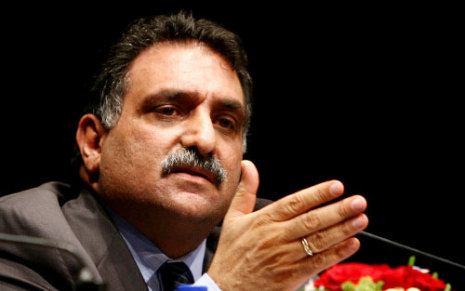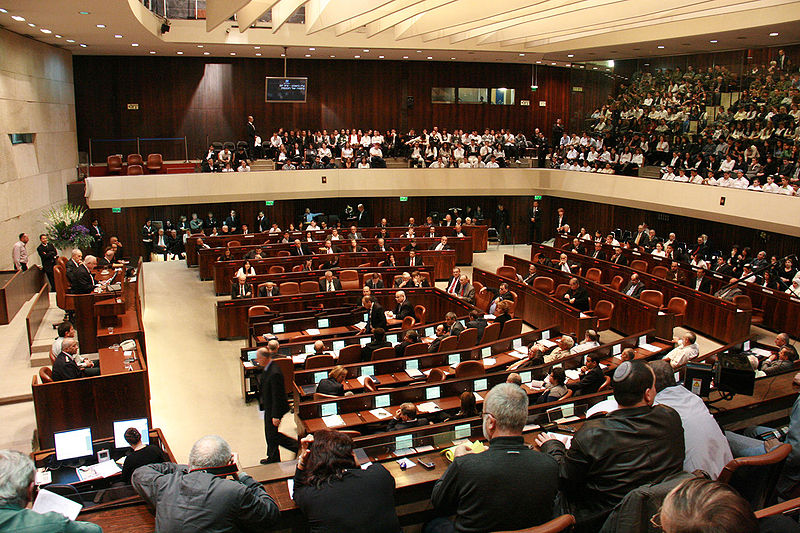Supreme Court Unanimously Overturns Ban of Balad/Tajammoa’s Hatikva Election Ad
Yesterday evening, 15 January 2013, the Supreme Court of Israel in a unanimous judgment by an expanded panel of five justices ruled to overturn a decision made by the Chair of the Central Elections Committee (CEC), Justice Elyakim Rubenstein, to ban the broadcast of an elections campaign video released by Arab political party Balad/Tajammoa’ (the National Democratic Assembly). Justice Rubenstein based his decision on the advert’s alleged “ridiculing” of the proposed “loyalty laws”, which seek to compel Palestinian Arab citizens of Israel to express their loyalty to Israel’s national anthem, Hatikva.

Yesterday evening, 15 January 2013, the Supreme Court of Israel in a unanimous judgment by an expanded panel of five justices ruled to overturn a decision made by the Chair of the Central Elections Committee (CEC), Justice Elyakim Rubenstein, to ban the broadcast of an elections campaign video released by Arab political party Balad/Tajammoa’ (the National Democratic Assembly). Justice Rubenstein based his decision on the advert’s alleged “ridiculing” of the proposed “loyalty laws”, which seek to compel Palestinian Arab citizens of Israel to express their loyalty to Israel’s national anthem, Hatikva.
The ruling was given on petitions filed separately by both Adalah and the Association for Civil Rights in Israel (ACRI). The petition was submitted by Adalah’s General Director, Attorney Hassan Jabareen, and Adalah Attorney Sawsan Zaher on behalf of Balad Chair MK Jamal Zahalka.
Responding to the court’s decision, Adalah welcomed the court’s unanimous acceptance of the arguments set forth in the petition, which contended that the purpose of the ad was to protest and criticize “in a satirical manner the attempt to pass laws that would compel Arab citizens of Israel to proclaim their loyalty to the Israeli national anthem”. Further, Adalah emphasized that the court’s decision plainly demonstrates that Balad’s campaign ad fell squarely within the scope of freedom of expression, did not breach the law, and should not have been banned.
The Supreme Court held an emergency hearing on the petition on 14 January 2013. The expanded panel of five justices consisted of Chief Justice Asher Gronis, and Justices Edna Arbel, Miriam Naor, Salim Jubran and Esther Hayut.
Chief Justice Gronis stated in his ruling that, “The current election’s campaigns adhere to the vast changes in the world of media. Radio and television are just parts of the arena now and the Internet and social media have become a big part of the campaign. This situation, in which massages can be relayed to the public in ways unforeseen by the legislator mandate an adaptation on the law’s part, in keeping with the times… It is hard to say that both [parties] failed to meet the law’s requirements in a manner which justifies having their ads disqualified… And while both may make the viewers uncomfortable, it does not warrant their disqualification.”
In his decision, CEC Chair Rubenstein stated that the ad “presents Hatikva in a distorted manner and ridicules the Israeli anthem”, which he deemed to constitute an insult to the symbols of the state.
The petition argues that the function of an elections campaign is to present contentious issues of debate to the electorate. The lyrics of the Israeli national anthem are a point of contention between various members of the public. Justice Rubenstein’s decision to ban Balad’s advert is not consistent with previous Supreme Court precedent. According to previous decisions, an elections campaign ad may only be banned if its contents incites to racism, or “disturbs the minimum level of mutual tolerance”.
Adalah also emphasized that an Arab political party may voice its criticism against the national anthem within the context of an elections campaign, and may also present it in a satirical, absurd, comical or sardonic manner. Such is the case with Balad’s advert, which depicts a farcical situation in which Avigdor Lieberman, the head of the Yisrael Beiteinu political party, is singing the Israeli national anthem in Hebrew but to an Arabic melody, accompanied by Eastern dancing. The aim here is criticize loyalty laws and to encourage Arab citizens to vote in order to block these laws’ enactment.
HCJ 246/13, Jamal Zahalka v. The Chair of the Central Elections Committee














